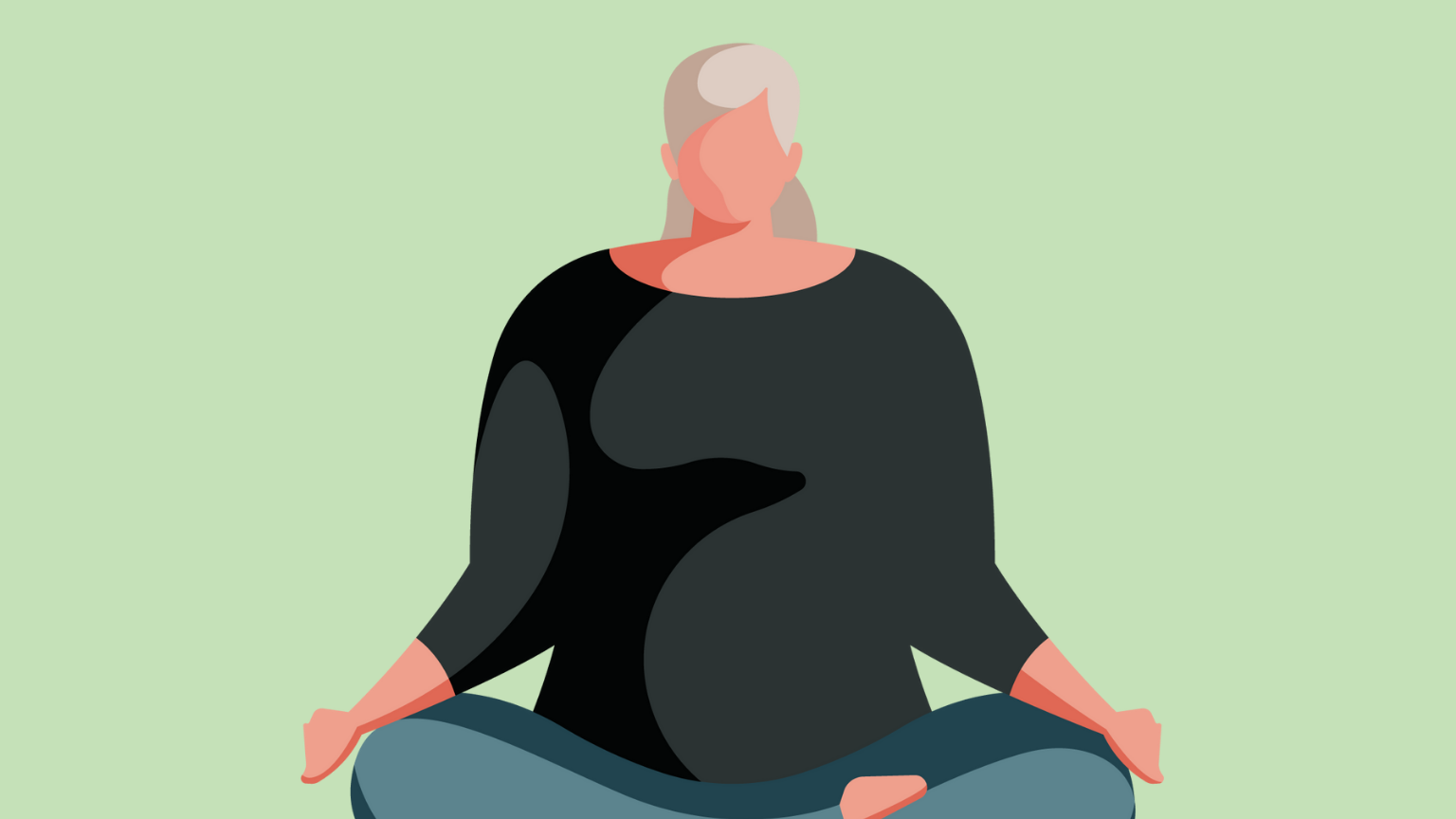Breathing. You’ve been doing it your whole life, about 20,000 times a day. It makes sense that you don’t really think about it a lot, although your breath is actually your most powerful tool if you want to quickly calm your body and mind.
So, how do you do this? Try out these three simple breathing exercises and experience their immediate calming effect.
Breathing exercises for relaxation
When you’re searching for more rest and balance in your life, meditation often seems like the answer. And obviously, meditation is a very effective – and proven – means of calming your body and mind, but that doesn’t mean it’s easy.
As soon as you sit still and try to shut out the outside world, you shine a spotlight on all the racing thoughts, feelings and sensations that are going on inside your head.
That can be very confronting and (at first) you might not find it relaxing at all. Fortunately, there is something that makes it easier, something you can always fall back on that has an immediate calming effect on your body and mind: your breath.
Your breath as the remote control for your nervous system
When you feel anxious or stressed and there are too many thoughts racing around your head, this has a direct effect on your breathing. It often sits high in your chest and becomes short and shallow.
As a result of this, your body thinks that it’s in fight or flight mode: your heart rate shoots up and your muscles tighten. This, in turn, makes you feel more agitated and stressed, which keeps your breathing fast. You stay trapped in a vicious cycle.
However, the good news is that you are able to reverse this effect. By calming your breathing, your body and mind will calm down as well. It’s a natural response.
Try these three relaxing breathing exercises and see for yourself what they can do for you.
1. Box breathing: relax and sharpen your focus
This technique is used widely by people in the military, healthcare professions, and the police force. And there’s a reason for that. Box breathing quickly and effectively reduces your heart rate and stress levels while increasing your concentration. After just five minutes of breathing this way, you’ll be able to work more efficiently, focus better, and perform at a higher level.
When?
Box breathing is a good technique to use if you want to start your day feeling calm and focused, push back against the afternoon slump, or prepare for an important meeting or presentation.
How?
Box breathing is also known as square breathing: you break up your breath into four equal parts, like the sides of a square. Start by sitting somewhere quiet, closing your eyes and emptying all the air from your lungs through the nose.
Next, hold your breath for four seconds, breathe in through your nose for four seconds, hold your breath for another four seconds and breathe out again for four seconds. Keep repeating. Breathe this way for five minutes to feel the full effects.
2. Balanced breathing: find your inner peace
This technique is also known as coherent breathing and it’s perfect for when you want to balance your nervous system. As the name would suggest, balanced breathing is about balancing your body and mind for more inner peace.
When?
You can do this anywhere when you’re feeling out of balance. This exercise is super simple and very effective. You’ll also experience the benefits on a long-term basis if you allow yourself to take a balanced breathing break three times a day, morning, noon and night.
How?
Sit quietly with your eyes closed and breathe calmly through your nose for the whole exercise. You’ll breathe at a balanced pace of five seconds in and five seconds out. You can count for yourself, but there are also apps that will set the pace for you if that’s what you’d prefer.
During the exercise, try to focus on positive feelings, such as gratitude or love. This will balance your head and heart, increasing the positive effect on your nervous system.
3. 4-7-8 breathing: drift into deep relaxation
This breathing technique is considered to be the best natural ‘calming pill’ in existence. 4-7-8 breathing was made famous by American physician Dr. Andrew Weil and is also known as the relaxing breath. This name is very apt because relaxation is guaranteed when you use this technique.
When?
This type of breathing is perfect for when you’re feeling overwhelmed or swept up in big, intense emotions. 4-7-8 is also great if you have trouble sleeping. This breathing technique slows your heart rate, quickly brings you back to the present moment and deeply calms your nervous system, giving you a sense of peace and tranquility.
How?
Sit or lie somewhere quiet and close your eyes. Place the tip of your tongue so that it is relaxed against your palate, touching the back of your front teeth. Now breathe in gently for four counts through your nose.
Next hold your hold your breath for seven seconds and then exhale slowly for eight seconds. You need to exhale through your mouth, as if blowing through a straw. Try to relax as much as possible and repeat four times in total.
👉 Further reading: The 5 Exercises A Psychologist Does To Relieve Stress
Your breath as a counselor and relaxation tool
The three techniques detailed in this article can help you to quickly de-stress, relax and unwind. What’s more, applying these is also a great place to start if you’re looking to become more aware of your breath in general.
Have you ever noticed how you breathe in different scenarios throughout your day? How you breathe, for example, when you’re stressed or triggered by something? Are you able to calm your breath down in these moments? And what effect does this then have on your body, your thoughts, and your perception of the situation? Your breath is the best counselor and the best relaxation tool there is.
Would you like to do a mindfulness exercise together or would you prefer to talk about your feelings? Schedule a consultation with one of our psychologists.





